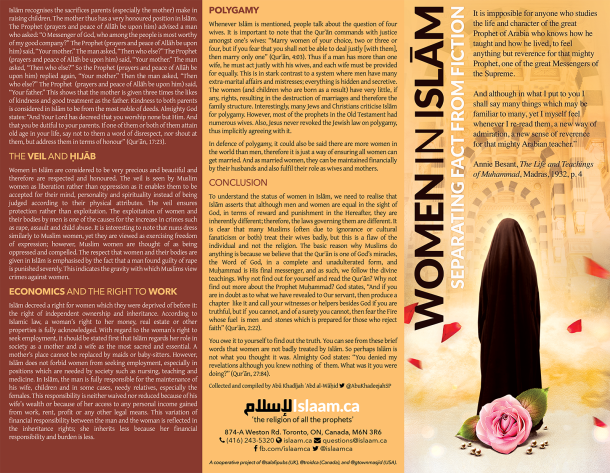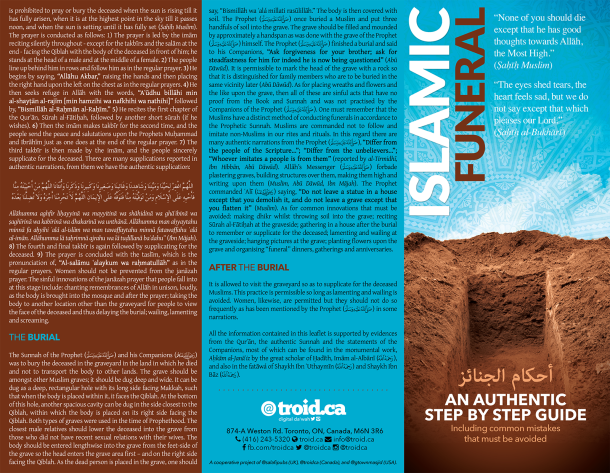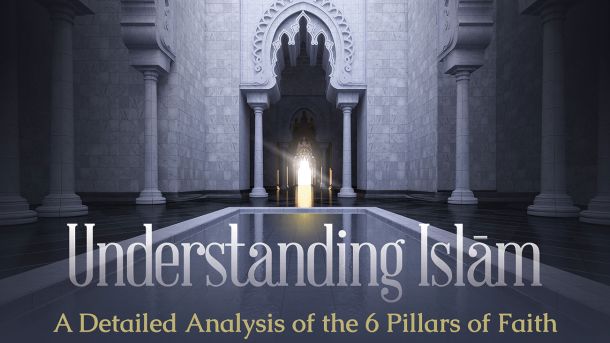News Archive
Mar 14, 2018
Major Sinners and Their Places in the Hereafter
[Q]: Allāh says in the Qurʾān that He does not forgive that partners are associated in worship alongside him, but he forgives anything less than that (Sūrah al-Nisāʾ, 4:116). He also says He is the most forgiving for whomever repents and believes and does righteous deed (Sūrah Ṭā Hā, 20:82). Is there a clash between these two verses? And what is the meaning of his statement “everything less than shirk (polytheism) for whomever he pleases” in the first ayāh.
Translated by: Mūsá Richardson
Feb 28, 2018
https://www.troid.org/wp-content/uploads/2018/02/womeninislam.pdf
Women in Islām – Separating Fact from Fiction
It is impossible for anyone who studies the life and character of the great Prophet of Arabia who knows how he taught and how he lived, to feel anything but reverence for the mighty Prophet, one of the great Messengers of the Supreme.
Annie Besant, The Life and Teachings of Muhammad, Madras, 1932, p. 4
Feb 28, 2018
https://www.troid.org/wp-content/uploads/2018/02/islamicfuneral.pdf
Islamic Funeral
The Eyes shed tears, the heart feels sad, but we do not say except that which pleases our Lord
Ṣaḥiḥ al-Bukharī
Feb 21, 2018
Our Life Is Not Without Purpose
Our respected teacher delivers a powerful khuṭbah which causes the hearts to tremble as we are reminded that indeed this world is nothing but a passing amusement, with our ultimate purpose on this earth being to worship Allāh alone as He should be worshipped, without associating partners alongside him. Allāh has sent His Messengers in order to call the people to Tawḥid and warn against the worshipping of false deities. If we fulfil our rights to Allāh, then Allāh will protect us from His punishment. Muʿādh ibn Jabal (May Allāh be pleased with him) reported: I was riding with the Prophet…
Feb 9, 2018
Concerning the Doubt – “It’s Just Translations and Translators”
On the 24th of Jumādá al-Awwal, 1439 (2018/02/09), we asked the noble shaykh and scholar, Ḥasan ibn ʿAbd al-Wahhāb al-Banná the following questions, after updating him on the progress of the Qawāʾid al-Arbaʿ class at TROID:
[Q]: Shaykh, what should we advise those who whisper and cast doubts about the weekly classes [at TROID and in the West at large] saying, “why should we attend these classes when we can simply read the book ourselves [i.e. it’s just translation]?”
[A]: This is the way of Ahl al-Sunnah, they do not teach from their own opinions, rather they read from the works of the scho…







